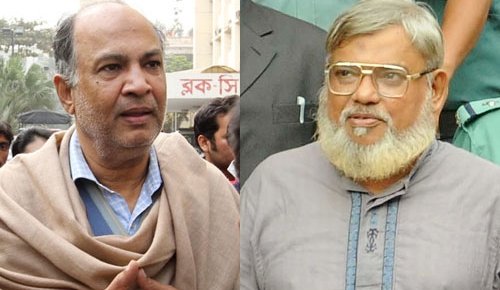Bangladeshi opposition leaders Salahuddin Quader Chowdhury and Ali Ahsan Mohammad Mujahid have been executed for war crimes committed during the 1971 independence struggle against Pakistan.
The two politicians were hanged in Dhaka’s central jail.
They were convicted of genocide and rape – charges they denied.
Salahuddin Quader Chowdhury has been an influential politician – he was elected member of Bangladeshi parliament six times. Ali Ahsan Mohammad Mujahid was a top leader of Bangladesh’s largest Islamist party.
Home Minister Asaduzzaman Khan said they were hanged after President Abdul Hamid rejected appeals for clemency by the two men.
However, family members have dismissed reports that the men had made any such appeals, which would have also required admissions of guilt.
“My father said he did not seek any mercy,” Salahuddin Quader Chowdhury’s son, Humam Qauder Chowdhury, told AFP news agency, after meeting his father for the last time hours before his execution.
“He has always said he’s innocent.”
The Supreme Court upheld their sentences earlier this month.
Salahuddin Quader Chowdhury was the most senior leader of the opposition Bangladesh Nationalist Party to be sentenced for crimes against humanity.
Two years ago, a special war crimes tribunal found him guilty of nine out of 23 charges including genocide, arson and persecuting people on religious and political grounds.
The prosecution said that his father’s residence in Chittagong was turned into a torture cell during the war.
Ali Ahsan Mohammad Mujahid was the secretary-general of Jamaat-e-Islami. He was sentenced to death in July 2013.
He was accused of responsibility for the killings of a number of pro-independence Bangladeshi leaders and intellectuals.
The tribunal found him guilty of five charges, including abduction and murder.
Bangladesh’s government says the war crimes trials are necessary to bring murderers to justice.
However, the opposition says they have been used to persecute them and human rights groups have said the tribunal does not meet international standards.
